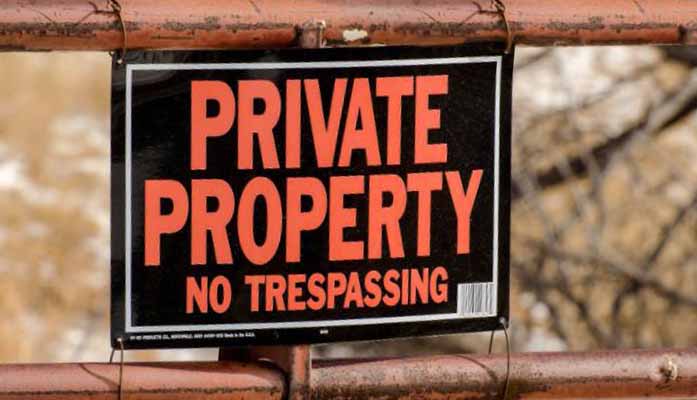
The Supreme Court’s CMS Decision Bodes Ill For The Rule Of Law
By Andrew Gould |
The recent US Supreme Court decisions around mask mandates have understandably generated a great deal of media coverage and comment. Many conservatives have praised the Supreme Court’s decision to affirm the stay on the nationwide OSHA vaccine mandate. But as a lifelong prosecutor and judge, I can assure you the true and most significant factor has been overlooked. Specifically, based on the Court’s decision to vacate the stay regarding the vaccine mandate for healthcare workers (the “CMS Mandate”), the President, with no constitutional or legal authority, has been allowed to order ten million healthcare workers to receive a vaccine or risk losing their jobs and their livelihood. And while state legislatures, exercising their police powers, have imposed vaccine requirements on healthcare workers in the past, no President has imposed a nationwide mandate involving such a permanent, personal healthcare decision. Simply put, as Judge Sutton recently stated in In re MCP No. 165, unlike masks or gloves, “vaccines cannot be removed at the end of the shift.”
The underlying legal justification for overturning mask mandates on businesses is the same legal basis that should have driven a decision to roll back a mask mandate for our health care workers. In both the OSHA and the CMS cases, the issue was not whether vaccines were a wise or effective measure against the spread of COVID-19. Rather, the issue was simply whether the President has the constitutional authority, through executive branch administrative agencies, to impose nationwide vaccine mandates. In the OSHA case, the Court held, by a vote of 6-3, that because Congress never clearly delegated such authority to the President, he lacked the authority to impose such a mandate. However, in the CMS case, Justices Roberts and Kavanaugh switched their votes on the grounds that Congress had delegated such authority to the President based on a hodge-podge of Social Security statutes. But these statutes provide no such authority. Indeed, the purported delegation for the CMS mandate was less clear and more strained than the statutes offered to justify the OSHA mandate. So, what explains the puzzling switch of two purportedly conservative Justices on essentially the same issue?
It is difficult to avoid the conclusion that Roberts and Kavanaugh, at least at some level, sought to appease the public’s concern over COVID. Thus, in effort to “soften” the public’s reaction to the OSHA decision, they justified the switch by relying on the purportedly stronger policy arguments for mandating vaccines for healthcare workers to protect hospital patients from COVID. But while politics and the will of the public has rightfully driven decision-making in our Executive and Legislative branches of government, our Judiciary was set up by our Founding Fathers to make judgements based on the law and precedent. The Supreme Court does not have the authority to determine whether vaccine mandates are good policy, nor may the Court violate the Constitution in the interests of promoting political harmony or the popularity of the Court. As Justice Scalia once stated, “If you’re going to be a good and faithful judge, you have to resign yourself to the fact you’re not always going to like the conclusions you reach. If you like them all the time, you’re probably doing something wrong.”
With these recent decisions around mask mandates, Justices Roberts and Kavanaugh have dangerously broken through that critical differentiation, opening the Court up to the influence of the day’s ever-changing political environment. Judges must have the courage and resolve to enforce the Constitution, even when the results may be unpopular. It may appease some that the OSHA stay was upheld, but it was denied for healthcare workers. But either way, the result is the same: a precedent has been set by the Court allowing the President to use any crisis labelled a “medical emergency” to expand his power. The consequences of this decision will inflict grave damage to the rule of law. As Justice Jackson stated in his dissent in Korematsu v. United States, when the Court permits another branch to set aside constitutional protections to address emergencies, such decisions lie “about like a loaded weapon ready for the hand of any authority that can bring forward a plausible claim of an urgent need.”
Of course, looming in the background is the Supreme Court’s pending abortion decision in Dobbs v. Jackson Women’s Health Organization. There are sound legal grounds set forth in Dobbs for modifying, if not overruling Roe v. Wade, and allowing the legislative branch to decide the abortion issue. But mark my words, the Supreme Court, led by Justices Roberts and Kavanaugh, will land on a more muddled, middle of the road, politically crafted decision that attempts to please everyone. They have shown their hand in the CMS case.
Andrew W. Gould was appointed as a Justice to the Arizona Supreme Court in 2017 after serving 5 years on Division One of the Arizona Court of Appeals. He retired from the Supreme Court in March 2021. Prior to his appointment to the Court of Appeals, Justice Gould spent 11 years as a Judge of the Superior Court in Yuma County, where he served as both Associate Presiding Judge and Presiding Judge.
Andrew received his J.D. from Northwestern University School of Law in 1990. He began his legal career in Phoenix, Arizona, practicing in the field of civil litigation. In 1994, he became a Deputy County Attorney, prosecuting major criminal cases for Yuma and Maricopa Counties. He served as Chief Civil Deputy for the Yuma County Attorney’s Office from 1999-2001. Justice Gould has previously served on the Arizona Supreme Court Commission on Technology, as the President of the Arizona Judges’ Association, and has taught at the Judicial Conference and New Judge Orientations.

